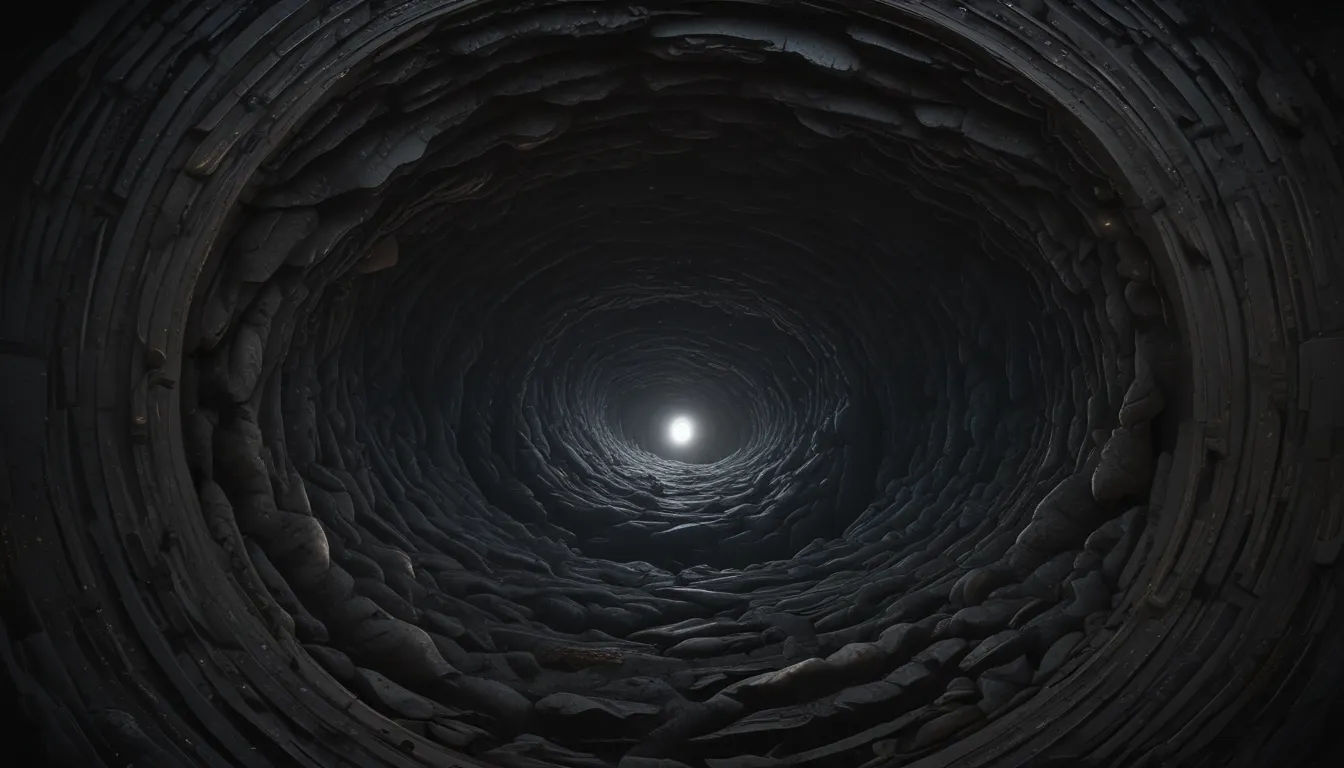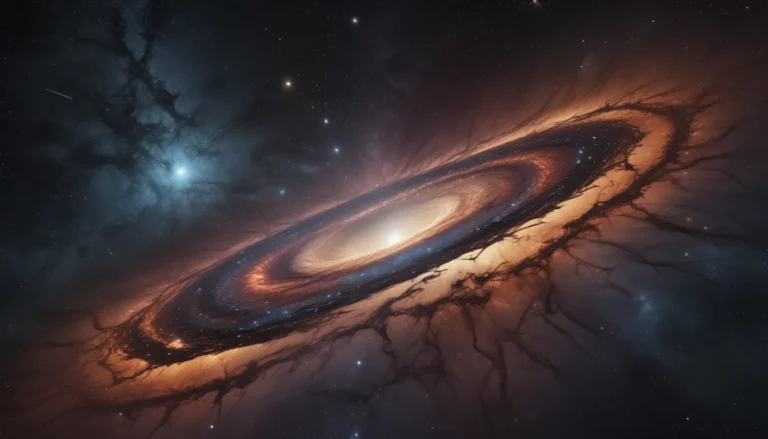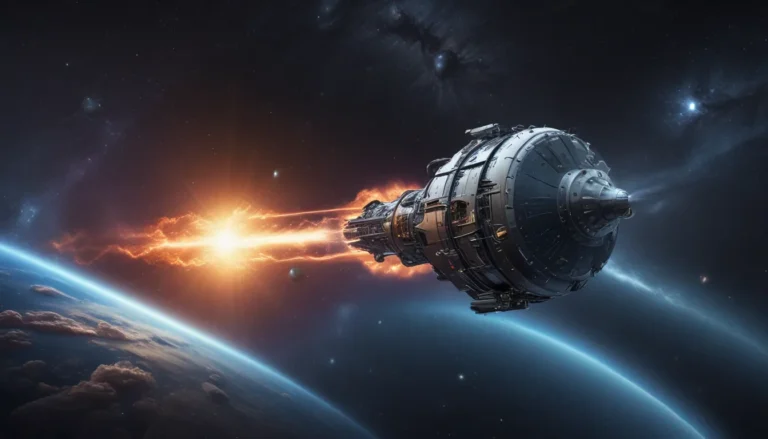The pictures we use in our articles might not show exactly what the words say. We choose these pictures to make you interested in reading more. The pictures work together with the words but don’t take their place. The words still tell you the important facts.
In the vast expanse of the universe, primordial black holes stand as enigmatic cosmic entities that have captivated the minds of scientists and astronomers for decades. Unlike their more well-known counterparts, supermassive black holes, primordial black holes offer a unique glimpse into the early stages of the universe, shedding light on its origins and potential clues about dark matter and dark energy. Let's embark on a journey to explore 17 intriguing facts about these mysterious celestial objects, diving into their origin, properties, and significance in our understanding of the cosmos.
Delving Into the Origins of Primordial Black Holes
Primordial black holes, believed to have emerged shortly after the Big Bang, are among the oldest objects in existence, providing a fascinating window into the origins of our universe. The exact formation process of these cosmic anomalies is still shrouded in scientific debate, with a prevailing theory suggesting that they could have arisen from density fluctuations in the early universe, leading to regions of highly concentrated mass.
Unraveling the Mystery of Varying Sizes
One of the intriguing facets of primordial black holes lies in their diverse range of sizes. From micro black holes with masses smaller than an atom to supermassive black holes millions of times the mass of our Sun, the size of these enigmatic entities is determined by the amount of matter present during their formation. Unlike black holes formed from the collapse of massive stars, primordial black holes are not tied to any specific stellar progenitors, allowing them to exist independently of stars.
The Enigmatic Potential as Dark Matter Candidates
A significant aspect of primordial black holes is their consideration as potential candidates for dark matter, a mysterious form of matter that remains invisible to light. Their gravitational effects on surrounding objects offer indirect evidence for their existence and open up intriguing possibilities for understanding the enigmatic realm of dark matter.
A Glimpse into Evaporation through Hawking Radiation
Much like other black holes, primordial black holes are predicted to gradually evaporate over immense time scales due to Hawking radiation. This process involves the emission of particles from the black hole, leading to a gradual reduction in its mass and offering a unique insight into their evolution.
Primordial Black Holes as Gravitational Lenses
One fascinating phenomenon associated with primordial black holes is their ability to act as gravitational lenses, bending and distorting light as it passes near them. This lensing effect serves as a valuable tool for astronomers to study the distant universe, unveiling new perspectives on cosmic interactions.
Exploring Their Role as Seeds for Supermassive Black Holes
Speculations abound about the potential role of primordial black holes as seeds for the formation of supermassive black holes found at the centers of galaxies. The rapid growth of these seeds over billions of years could potentially explain the existence of these massive celestial bodies, deepening the understanding of galactic evolution.
The Challenge of Detecting Primordial Black Holes
Detecting primordial black holes remains a daunting challenge for astronomers due to their elusive nature. Various methods, such as gravitational microlensing and studying cosmic microwave background radiation, have been proposed to search for potential signatures of these enigmatic objects, offering a glimpse into their elusive realm.
Implications for Dark Energy Exploration
Studying the properties of primordial black holes can provide valuable insights into the nature of dark energy, the mysterious force believed to be responsible for the accelerated expansion of the universe. By unraveling the distribution and behavior of these cosmic anomalies, researchers can constrain theories related to dark energy and illuminate new pathways for exploration.
Unveiling Possible Formation Mechanisms from Inflation
During the inflationary period of the early universe, the rapid expansion could have paved the way for the creation of primordial black holes. The intense gravitational forces generated during inflation may have concentrated matter and energy into regions that eventually collapsed into these enigmatic entities, offering a new dimension to understanding their origins.
Contributing to the Symphony of Gravitational Waves
Primordial black holes play a crucial role in generating gravitational waves, the ripples in the fabric of spacetime that offer unique insights into the dynamics of the universe. By studying the gravitational wave signals emanating from these black holes, researchers can delve deeper into their properties and formation mechanisms, unlocking new realms of exploration.
Puzzle Pieces in Black Hole Merger Events
The intriguing detection of gravitational wave events resulting from black hole mergers has sparked questions about the origin of these celestial phenomena. Primordial black holes emerge as one potential explanation for these enigmatic observations, offering a tantalizing glimpse into the interconnected web of cosmic interactions.
Primordial Black Holes and the Enigma of the Multiverse
Delving into the concept of the multiverse, a hypothetical ensemble of multiple universes, primordial black holes offer invaluable insights into the structure and dynamics of this multifaceted realm. Their formation and distribution provide clues about the interconnected nature of the multiverse, unveiling new perspectives on the vast expanse of cosmic possibilities.
The Quest for Detection through Dark Matter Experiments
Efforts are underway to detect primordial black holes through dark matter experiments, aiming to capture the rare interactions between dark matter particles and ordinary matter. By indirectly revealing evidence for the existence of these cosmic anomalies, these experiments pave the way for new discoveries in the realm of dark matter and primordial black holes.
Unraveling the Tapestry of the Early Universe
Studying primordial black holes serves as a gateway to exploring the conditions and properties of the early universe, offering a unique perspective on the dynamics of cosmic evolution. By unraveling the formation and evolution of these ancient black holes, researchers gain invaluable insights into the intricate dance of the cosmos in its nascent stages.
A Gateway to Uncharted Physical Realms
The study of primordial black holes stands as a testament to humanity's quest for unraveling the mysteries of the universe. By delving into their properties and interactions, scientists venture into uncharted realms of physics, potentially uncovering new physical phenomena and expanding the horizons of our understanding of the cosmos.
In Conclusion
In conclusion, primordial black holes represent a captivating realm of exploration that challenges our existing knowledge and pushes the boundaries of scientific inquiry. From their diverse mass ranges to their potential implications for dark matter and cosmic evolution, these enigmatic celestial entities continue to intrigue astronomers and physicists worldwide. As our understanding of primordial black holes deepens, the future promises to unveil even more fascinating facts about these ancient cosmic anomalies, enriching our knowledge of the interconnected tapestry of the universe.
FAQs
- What are primordial black holes?
-
Primordial black holes are believed to have formed shortly after the Big Bang, originating from density fluctuations in the early universe and differing from conventional black holes formed from massive star collapse.
-
Can primordial black holes be detected?
-
Detecting primordial black holes presents challenges due to their lack of light emission. Scientists explore methods such as gravitational lensing and studying their effects on cosmic microwave background radiation to identify their presence.
-
Do primordial black holes possess a specific mass range?
-
No, primordial black holes exhibit a wide range of masses, from microscopic to supermassive, showcasing their unique diversity in the cosmic landscape.
-
Are primordial black holes linked to dark matter?
-
Yes, primordial black holes have been proposed as potential candidates for dark matter, offering explanations for the mysterious gravitational effects observed in the universe.
-
Can primordial black holes influence the stability of galaxies?
- Absolutely! Depending on their mass and distribution, primordial black holes can significantly impact the structure and dynamics of galaxies, influencing the formation of stars, black holes, and the fate of entire galaxies.
Embark on a journey into the captivating realm of primordial black holes, unravelling the secrets of the universe's origins and the enigmatic dance of cosmic phenomena. Explore the mysteries of dark matter, gravitational waves, and the multiverse through the lens of these ancient cosmic anomalies, and immerse yourself in the quest for uncovering the hidden truths of the cosmos. As we gaze upon the cosmic tapestry woven by primordial black holes, let the wonders of the universe inspire and ignite a curiosity that transcends the boundaries of space and time.






